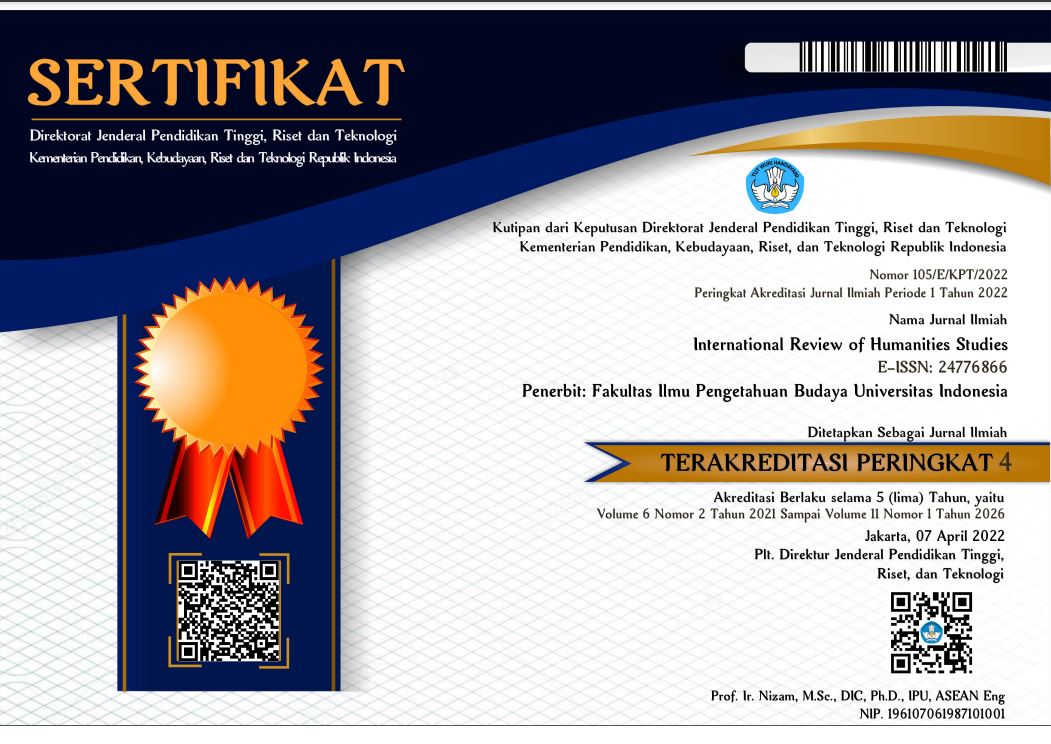International Review of Humanities Studies

Abstract
Russia has a culture of communal living that already existed far before the Soviet era. In the soviet regime, communal living was seen as an instrument to reach Soviet’s utopian objective. In order to minimize dissident movements and rebellions, people are pressed to live together so they can watch each other. As a result, no Russian word could describe privacy, the concept itself did not grow in Russian society. Although consciousness of privacy needs began to grow. In the meantime, people around the world start to fix privacy issues by formulating the law, while Soviet people still dealing with the concept itself. Many of Russian films shows the privacy issue in Soviet communal life, one of them is a film by Kantemir Balagov (2019) titled Дылда/Dylda (Beanpole). The film is relatively new, therefore, not much previous research about it. By analyzing how the film Дылда shows privacy in Soviet communal life, it will reveal that now is seeing privacy as an issue. With the three dimensional view of CDA, the result obtained is that critiques arise for this ‘crisis of privacy’ as a consequence of lacking privacy by people outside Soviet.
Recommended Citation
Shintamega, Erischa Dwi and Widyastuti, Thera
(2021)
"PRIVACY INSIDE SOVIET COMMUNAL LIFE IN THE FILM ДЫЛДА BY KANTEMIR BALAGOV,"
International Review of Humanities Studies: Vol. 6:
No.
1, Article 17.
Available at:
https://scholarhub.ui.ac.id/irhs/vol6/iss1/17
Included in
Arts and Humanities Commons, Communication Commons, Geography Commons, Political Science Commons, Public Affairs, Public Policy and Public Administration Commons, Sociology Commons


